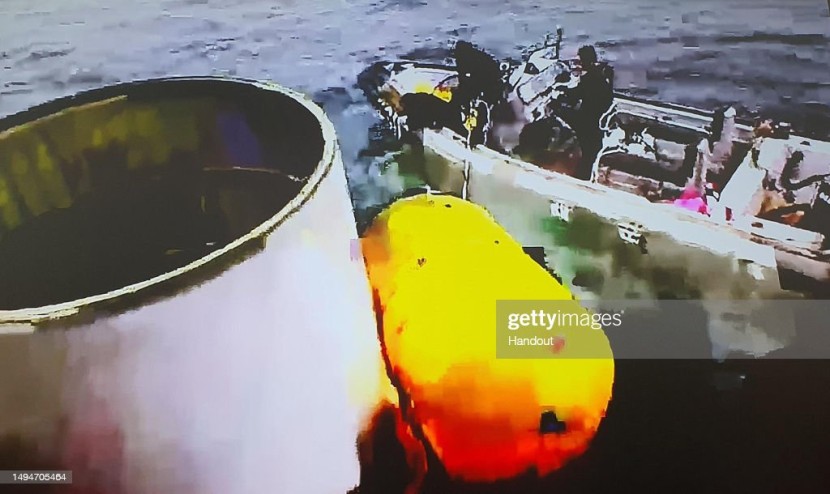The South Korean military reported on Wednesday that it had recovered the remains of a North Korean spy satellite that had crashed into the water in May following a failed launch and discovered it was useless as a reconnaissance satellite for any military use.
The booster and cargo of the failed launch, which plummeted into the ocean shortly after takeoff, were also retrieved by the military last month, as reported by Reuters.
The salvage efforts, which had started as soon as the wreckage splashed down off the coast of South Korea on May 31, were reportedly put to a conclusion on Wednesday, according to the South's military. The attempt included deep-sea divers, aircraft, and the navy.
A First for South Korea
According to South Korean military experts, this is the first time South Korea has intercepted a satellite launched by the North.
According to the initial evaluation, the equipment's reconnaissance capabilities were lacking in terms of target tracing and resolution, according to Lee Choon-geun, a specialist at South Korea's Science and Technology Policy Institute.

The resolution of the optical gadget loaded on the satellite, according to Yang Uk, a fellow at the Asan Institute for Policy Studies in Seoul, "was not suitable for military use."
Just hours after the spacecraft's launch, South Korea's military tracked the launch and found a sizable cylindrical piece of debris in the water, but the item sank to the seafloor. Two weeks later, it was found.
Last month, North Korea made an unusually direct acknowledgment of the failed launch in public, calling it the "gravest failure" but pledging to soon succeed in its ambition to enter orbit.
The nuclear-armed North has stated it will launch its first surveillance satellite to improve monitoring of American military activity. The North has been pursuing a satellite launch program since the 1990s.
North Korea launched items that are still in space in 2012 and 2016. Although Pyongyang claimed they were observation satellites, there has been no proof that they were active or sending out communications.
The May 31 launch was roundly denounced as a violation of international law and U.N. resolutions by South Korea, Japan, and the West. Security Council resolutions that forbid the North from using ballistic missile technology.
Such criticism is rejected by Pyongyang as an infringement on its sovereign right to space exploration and self-defense.
North Korea's leader, Kim Jong Un, promised to create military reconnaissance satellites in a significant policy speech in January 2021. Pyongyang appears to have improved its Sohae satellite launch facility recently, possibly in preparation for another attempt.
North Korea blamed the failure on a lack of second-stage engine thrust at a meeting of the governing Workers' Party in June and criticized the "irresponsible" planning of authorities and engineers involved.
© 2026 HNGN, All rights reserved. Do not reproduce without permission.








